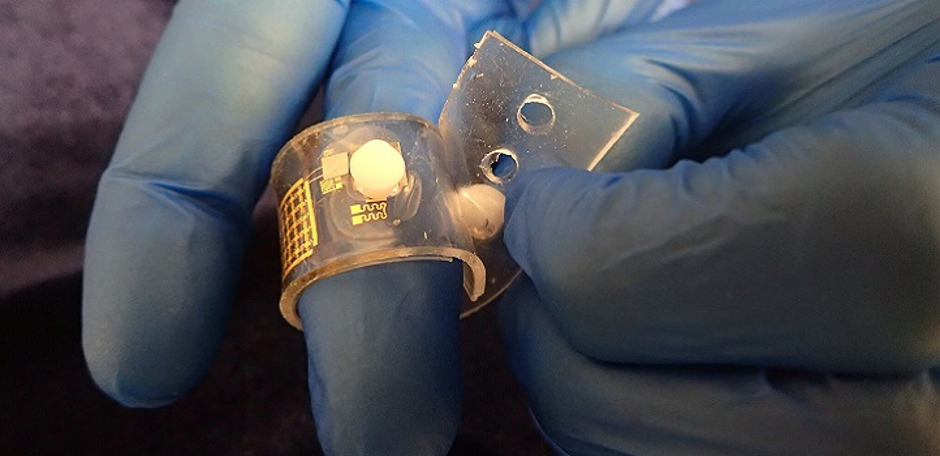
Marine Skin is said to be a thin, flexible, lightweight polymer-based material with integrated electronics which can track an animal’s movement and diving behaviour and the health of the surrounding marine environment. Early versions of the sensor were glued onto a blue swimming crab, but the latest version is attached to an animal using a non-invasive bracelet or jacket. This can, when necessary, avoid the need for any glues that might harm an animal’s skin. Their results are published in Small.
“The system can now operate down to a depth of 2km, which has never been achieved before by anyone,” said PhD student Sohail Shaikh of the KAUST (King Abdullah University of Science and Technology) team.
According to KAUST, the sensitivity of the monitoring electronics has also been enhanced by up to 15 times. The data collected reveals a tagged animal’s depth and the temperature and salinity of the surrounding water. Further development is planned to incorporate additional environmental sensing capabilities, such as measuring oxygen and carbon dioxide levels and precise geolocation tracking.
Shaikh said that a major challenge in developing marine skin enhancements was to make the system sufficiently robust to tolerate operating at much greater depths. The researchers also managed to reduce the size down to half that of the previous version. Tests also showed improved performance, flexibility and durability when the skin was attached to different fish, including sea bass, sea bream and small goldfish. Lab tests in highly saline Red Sea water also demonstrated integrity through a full month’s immersion and 10,000 extreme bending cycles.
"Marine skin is a unique and ground-breaking innovation in wearable technology for marine animals,” said Muhammad Mustafa Hussain, whose research group has developed the system in collaboration with Carlos Duarte's group, also at KAUST.
Professor Hussain said that marine skin outperforms all existing alternatives and ongoing development work will continue to enhance the sensing capacities, overall performance, reliability and affordability.











Radio wave weapon knocks out drone swarms
Probably. A radio-controlled drone cannot be completely shielded to RF, else you´d lose the ability to control it. The fibre optical cable removes...